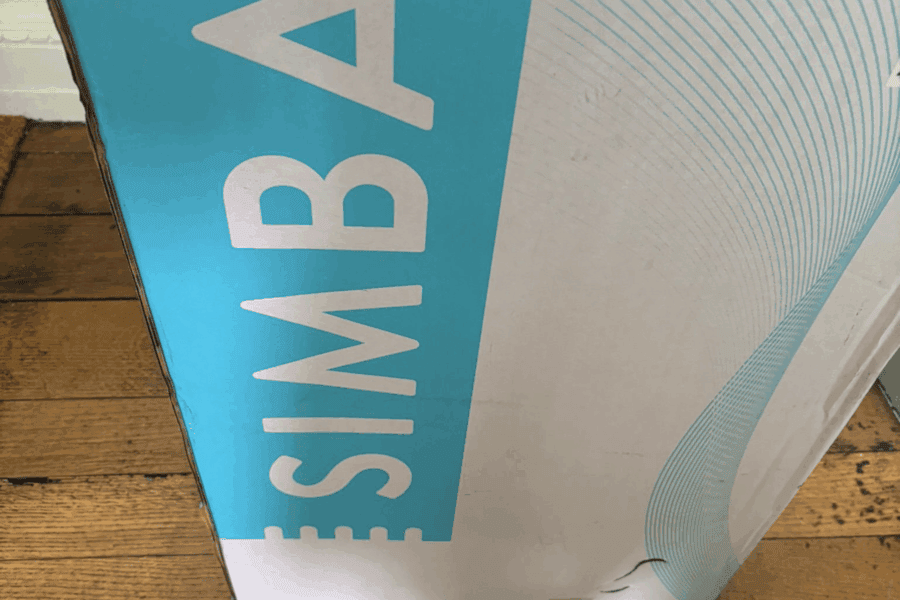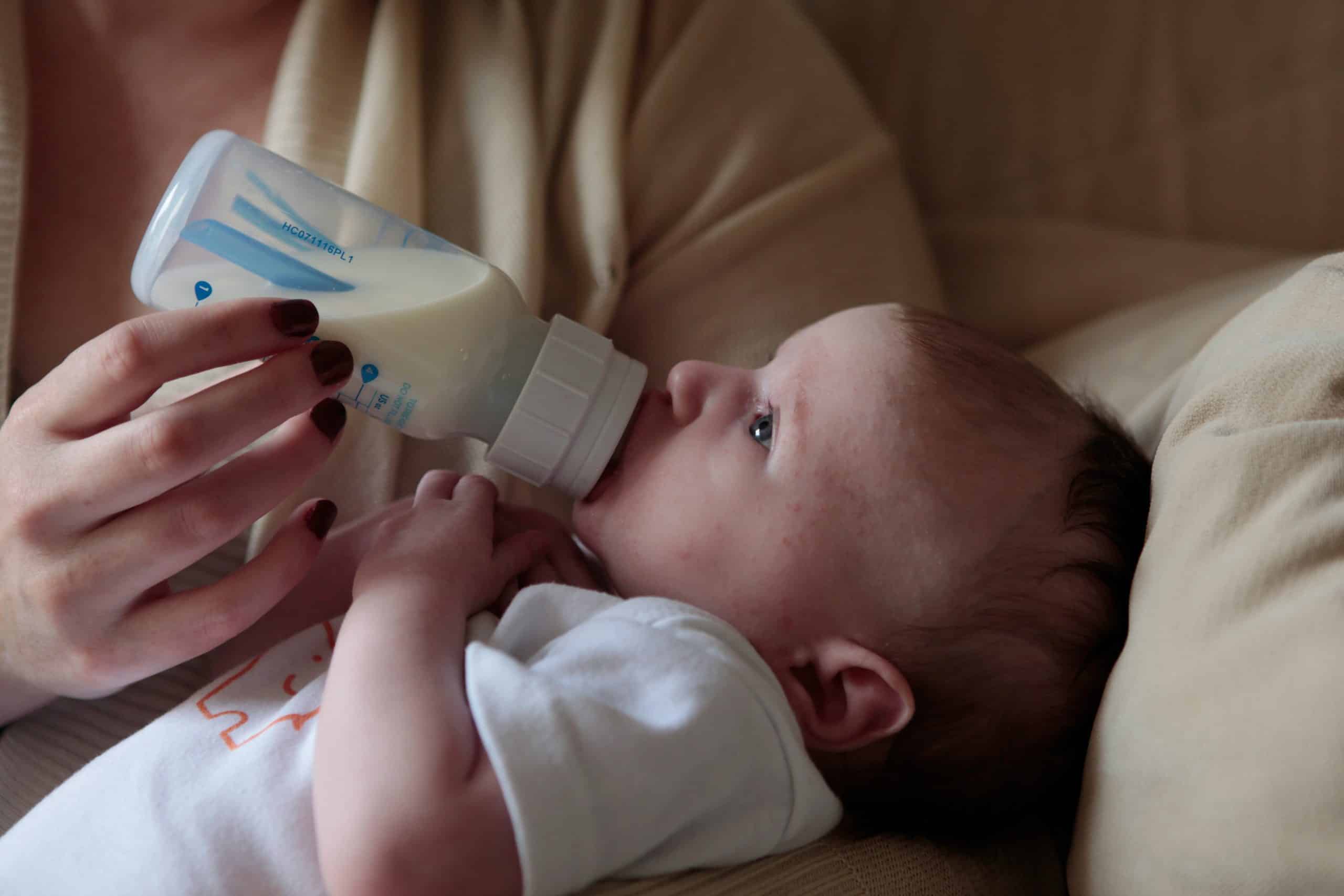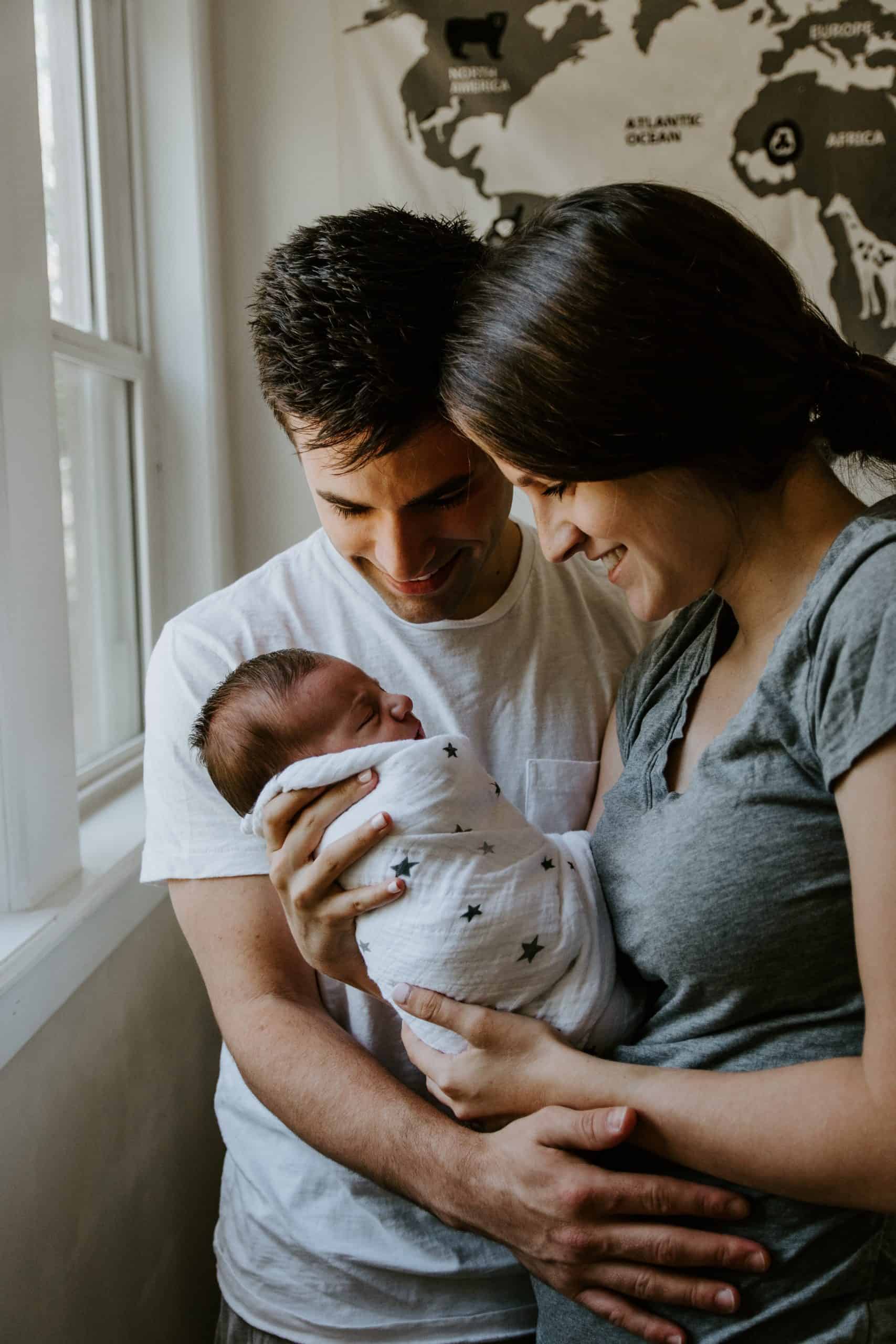
At what age should I begin toilet training?
- There is no specific age to begin. It’s about noticing signs as to when your toddler is ready. This usually happens between the ages of 2-3 years old as a general rule but can be earlier with some toddlers and later with others. Full details of the signs and how to toilet train without stress can be found in chapter 6 of my toddler book.
How many words should my 2-year-old be saying?
- Understanding comes before actual speech and although your toddler may still only have less than 50 words in their total vocabulary, they will understand much more and will be able to follow a range of instructions you give, i.e ‘go and put that in the bin, fetch me the ball’. By 2 years your child may be starting to string two words together, i.e ‘up please’. All children develop speech at different stages of their toddlerhood and there are many factors that can influence it, as discussed in more detail in chapter 4 of TBTE.
My 18m old has started to have tantrums already. How do I deal with this?
- Early tantrums are usually linked to frustration and not having the words to express what he/she wants easily or to make him/herself understood. This is also part of your child learning that they can’t always have everything they want. Distraction is the best way to deal with an impending tantrum or one that has started. Change activity. Make something else seem like the most wonderful thing you have ever seen, to take their mind off whatever was causing the frustration. Your child will very quickly forget about the thing or reason that wound them up in the first place. You will find more tips and ways to deal with tantrums in chapter 3 of TBTE.
How much sleep should my toddler have? At what age will they drop their day nap?
- Toddlers still need 11-13 hours sleep per night. It varies as to what age a toddler will no longer need a nap, some will drop it at 2 years old, but others still need a day nap at 3 1/2-4 years. Be guided by them. As long as they still settle and sleep well at bedtime and overnight, then it will benefit them and you to allow a nap over the lunchtime period to prevent an overtired fractious afternoon and evening. If your toddler is a poor sleeper, then you need to read the sleep chapter and the possible reasons why that is, in order to change it and encourage better overnight sleep.
What age should I transition from cot to bed?
- Again, this is not an age thing but more when your child is showing readiness. With some toddlers, the decision is taken out of your hands, as they may decide to begin climbing out of their cot every time you put them in it. If this is happening then you need to transition to a cot sooner rather than later for their safety. If they are still quite happy sleeping in their cot at 2 years old then my recommendation is to wait until sometime around the age of 2 1/2 before making the transition. At that age, your toddler’s speech and understanding should be improving and it will be much easier to explain what is happening. Also, encourage your child to want to settle and stay in bed, rather than get out frequently now they know that’s an option. More details on how to transition can be found in chapter 1 of TBTE.
How do I prepare my toddler for the arrival of a new baby?
- There are many things you can do to help prepare your toddler for a baby sibling to help the new arrival not be too disruptive and a positive thing for your toddler to enjoy. There are lots of info on this topic and some tips for before and after the new baby is born in my toddler book and also in the sibling rivalry blog post.
When should I move from formula/breastfeeding to Cow’s milk?
- Cow’s milk can be given to drink anytime from the age of 12 months. If you would prefer to continue breastfeeding or use the toddler formula milk after 12 months that is, of course, fine and your own personal choice.
How much milk should a toddler be drinking per day?
- Children between the ages of one and three need to have around 350mg of calcium a day. About 300ml of milk (just over half a pint) would provide this. If your toddler is having dairy in other forms such as cheese, yogurts etc, then you can reduce how much milk they drink as a daily intake to get that recommended minimum amount.
My toddler says ‘no’ all the time whenever I ask him to do something-how do I deal with this?
- This is a normal part of his development and speech process. He learns that he can have a choice in things now he’s getting older and makes every attempt to make himself and his wants known. Try to give choices between 2 things in almost everything you do, so that he feels he has some control. This will make life a lot easier and less stressful for both of you, as he will feel like he has choices and you will be providing him options between two things you are happy for him to choose from. Distraction and lots of enthusiasm in your voice are other tools that will help you convince him to do things he’s not so keen on.
How can I help my toddler develop her speech?
- In short, talk to her all the time about anything and everything! Babies and toddlers learn by example and the more she hears you talk, the more her understanding will develop and in turn her speech. Read the tips in the speech and language chapter of TBTE for more detail on how to do this and what activities will help.
How do I encourage my toddler to share and be kind?
There are lots of ways.
- Be a good role model. She will mimic how you behave, so if she sees you talking nicely and being kind and helpful to others then she will naturally follow suit.
- Get her a doll or teddy and encourage role play and how to be kind and share when playing with it in pretend situations.
- Take her to toddler groups and meet up with friends regularly. The more she mixes with her peers the better she will get at understanding on how to share and watching others do it will help too.
For more info read the behavior chapter in TBTE.
My toddler can sometimes be aggressive with other children when we are out and try to bite them! It’s so embarrassing-how do I deal with it?
- Try to understand and work out what the triggers are for when he is aggressive. In toddlers, it is usually an act that they do because they are frustrated and not able to express their feelings, or what they want with the language they currently have. It can also be something they do if they are teething particularly badly, as they need something to mouth to ease the pain. It is a very normal part of their development though and with the right direction from you, it will not end up being an ongoing and long term problem. More details on how to prevent and react can be found in TBTE.
Each time I try to strap my son into his buggy or car seat he has a tantrum and it’s very difficult to get him in at all! He’s very strong! How do I deal with this?
- Distraction is the best way to deal with this. If he’s busy eating or drinking something, or you can be chatting to him or singing as you strap him in, or even point out some really exciting object, an animal or person you see close by can be enough to quickly strap him in before he realizes what’s happening! He can tantrum once he’s in, but at least he will then be safe and you can continue with your journey!
How do I transition from 2 naps (morning and afternoon) down to 1 nap and fit meals in?
- The ideal time to encourage a nap once you drop down to only one per day is over the lunchtime period. This usually needs to happen around the age of 12-15 months and you will know they are ready to drop to 1 nap as they will become difficult to settle for their usual morning and afternoon naps and/or begin to take very short naps, even though they are clearly still tired. To begin with, your toddler will struggle to get past 12 pm so you need to give an early lunch around 11:20/30 and then put your little one straight to bed afterward for around 2-3 hours. Always ensure they are awake by 3 pm if you want them to settle well for a 7/7:30pm bedtime. As they get a little older and are able to stay awake a bit longer, you can begin to push their lunch and nap a little later so they can have lunch around 12 and nap straight after.
What is the correct portion size to give to my toddler at mealtimes?
- As a beginning guide, use the comparison to an adult’s clenched fist as the amount of food you give your toddler for their main meal. The total food on their plate should be no bigger than the size of a fist. Putting too much on their plate initially, can overwhelm your child and put them off even attempting to eat the meal. You can always offer more to toddlers with bigger appetites if they finish the first helping and ask for extra.
Do I need to give my toddler vitamin drops in addition to the food in their diet?
- The current advice from the Department of Health (at April 2015) is that all babies and toddlers from 6 months to 5 years should be given supplements in the form of vitamin drops, which contain vitamins A, C and D. Children who do not eat a varied diet don’t always get enough of vitamins A and C, and vitamin D is only found naturally in oily fish and eggs, with its main source being summer sunlight on your child’s skin. A baby or toddler still having infant formula will NOT need vitamin D supplements until they are drinking less than 500ml of milk (1 pint) per day as their infant formula is fortified with Vitamin D anyway.
When should I start brushing my toddler’s teeth?
- You should ideally start brushing your child’s teeth as soon as the first ones cut. If you make this part of your daily routine then you shouldn’t have any issues or reluctance from your toddler at teeth brushing time. If you are having issues then it’s worth allowing them to choose a special toothbrush from the wide range available now. Electric ones can have an exciting appeal to them, or if your toddler doesn’t like the noise they make then a flashing one to give them a cue as to how long they need to brush for. Use a reward chart to praise your toddler for teeth brushing if it’s not an activity he or she is keen on doing.
Since my toddler started walking he is into everything and always trying to touch everything in the house I don’t want him to! How can I make the house safe for him and teach him not to touch?
- There are some things you will need to put out of his reach for his safety. With other things, then distraction is again your best tool. Let him know that he’s not allowed to touch certain things, if he does try, immediately distract to another activity to stop him being tempted to keep touching to wind you up and it turns into a yes-no battle. More tips and advice can be found in the behavior chapter of TBTE.
My toddler wakes frequently at night. We are considering moving him to a bed to see if this will improve sleep but not sure what to do?
- Moving him to a bed will not usually improve sleep. If anything his sleep issue will get worse once he realizes he can actually get out whenever he wants to! You need to figure out the reason for the frequent waking. Can he self-settle without the help of you cuddling, rocking or staying with him? Does he use a dummy? If he’s reliant on any help to always aid to sleep then that will always cause frequent waking as he passes through the sleep cycle as he will continue to need that same help to go to sleep again. You will find more info in the sleep chapter of TBTE on how to encourage good settling and sleep habits.
How can I encourage my twins to share and be kind to each other?
- Interact with them as much as you can, to begin with as they are first learning to play. Encourage sharing and kind behavior by displaying it yourself and showing them how to share and wait their turn. Use an egg timer or something similar if there is only one particular toy they both want, to give them some idea of how long they need to wait their turn. Unfortunately, twins have to learn the art of sharing and waiting their turn from a young age, due to the fact that there is two of them. It takes time, but they do get there.
I am looking for a nursery to send my toddler to. What questions should I be asking to help me decide the right one?
- There are different things that are important to different parents so the questions you ask will be relevant to your needs as a family and your individual child. For reference though there is more info in chapter 7 of TBTE on childcare options. Make sure you visit a few different nurseries. To begin with, visit on your own without your child, as it’s not a good idea to unsettle your toddler with visiting lots of potential places. Once you have a shortlist of 2 or 3, or you may even just have an instinct for the one you like in particular, then arrange a visit for your toddler. Watching their reaction and how the staff interacts with your child will likely be the deciding factor for you. If your toddler is happy and relaxed then that’s more than half the challenge complete. Trust your instinct
My toddler is suddenly becoming very independent and wants to do everything alone. He clearly can’t always manage this though and gets very frustrated. What can I do to help?
- Allow him to try at least and let him know that you are there to help him. Offer help initially, ‘do you want mummy to help you?’ If he says no then leave him to try. Wait and see if he’s still struggling then offer your help again. Try to give minimal help at this very independent stage but just enough to do the part that he’s struggling with. If you try to allow him to finish the job off each time then he will be pleased with himself and you can praise accordingly,”well done good job!”
I hope you found the above info helpful.
Please SHARE with friends to help other parents, and if you need more detailed guidance then my toddler book will help, or I can give one to one personalized guidance using our membership support service.
Good luck!



